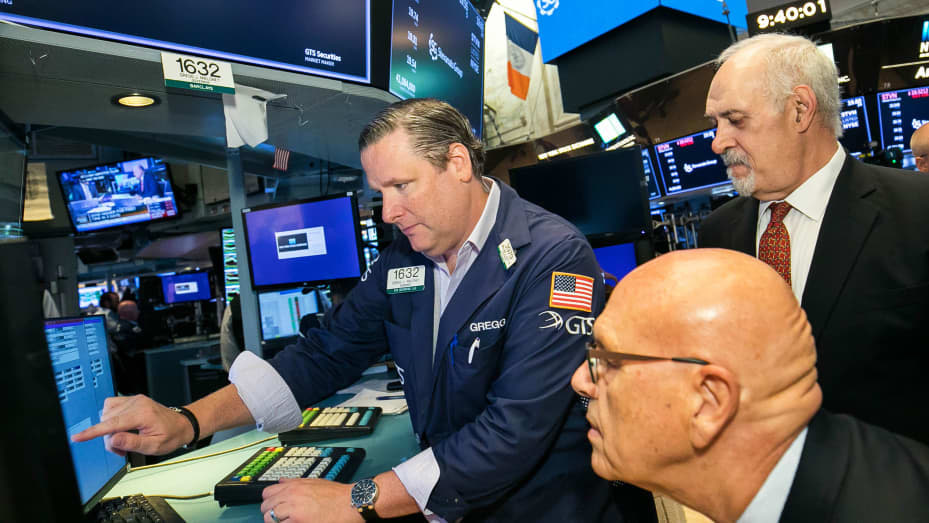France's Economic Slowdown: A Deep Dive into the 2025-2026 Projections
Meta Description: France's economy faces headwinds. This in-depth analysis explores the Bank of France's revised 2025 and 2026 growth projections, examining the impact of political instability, inflation, and global uncertainties. We delve into potential solutions and future economic outlook for France. #FranceEconomy #EconomicGrowth #FrenchEconomyForecast #PoliticalInstability #Inflation
Are you worried about the future of the French economy? You should be! Recent projections from the Bank of France painted a rather bleak picture, a far cry from the optimistic forecasts just months ago. The whispers of a slowdown have turned into a full-blown economic murmur, leaving many wondering what the future holds for this European powerhouse. This isn't just about numbers on a spreadsheet; it's about the everyday lives of French citizens, the stability of businesses, and the overall health of a nation renowned for its contributions to the global economy. We're not just talking about GDP figures; we're talking about the real impact on families struggling with inflation, businesses facing uncertainty, and the government grappling with difficult choices. This detailed analysis goes beyond the headlines, delving deep into the factors driving this economic shift. We’ll unpack the Bank of France's revised projections, explore the underlying causes – from political turmoil to global market fluctuations – and offer insightful perspectives on what this means for the future. Prepare for a comprehensive look at the situation, complete with expert analysis, real-world examples, and actionable insights. We'll dissect the complexities, breaking down the jargon and providing a clear, concise, and engaging explanation suitable for everyone, from seasoned economists to concerned citizens. So buckle up, because this journey into the heart of the French economic landscape is about to begin! We’ll examine the implications for various sectors, discuss potential mitigation strategies, and, most importantly, offer a realistic outlook on where France stands and where it's headed. Don't just read the headlines; understand the story behind them.
France's Economic Growth Projections: A Revised Outlook
The Bank of France's recent downward revision of its economic growth projections for 2025 and 2026 sends shockwaves through the French economy. Instead of the previously anticipated 1.2% growth in 2025, the revised forecast stands at a mere 0.9%. Similarly, the 2026 projection has been slashed to 1.3%. This isn't just a minor adjustment; it signifies a significant shift in economic expectations, highlighting the challenges France faces in maintaining its economic momentum. This drastic change warrants a thorough investigation into the underlying causes and their potential implications. What factors contributed to this significant downturn? Let's delve into the details.
The Impact of Political Instability
The Bank of France explicitly cites political instability as a major factor contributing to the lowered growth projections. This isn't just about headline-grabbing political dramas; it's about the erosion of confidence among both businesses and consumers. Uncertainty breeds hesitancy – businesses postpone investments, consumers delay purchases, and overall economic activity slows. (Think of it as a domino effect – one hesitant action triggers a chain reaction.) This lack of confidence directly impacts investment plans, hiring decisions, and consumer spending, all vital components of a healthy economy. The ripple effect is substantial, leading to slower growth and potentially increased unemployment. This situation underscores the critical link between political stability and economic prosperity. A stable political environment fosters confidence, encouraging investment and consumption, while instability creates uncertainty and hinders economic growth.
Inflationary Pressures and Global Uncertainty
Beyond political factors, inflation continues to pose a significant challenge to the French economy. Rising prices erode purchasing power, impacting consumer spending and consequently, economic growth. Moreover, global uncertainties, including geopolitical tensions and supply chain disruptions, further complicate the economic outlook. These external factors add another layer of complexity to the already challenging situation, making accurate forecasting even more difficult. The interconnectedness of the global economy means that events in one part of the world can quickly impact others, and France is no exception. The combination of domestic political instability and global economic headwinds creates a perfect storm that significantly impacts growth projections.
Sectoral Impacts: A Deeper Dive
The slowdown won't affect all sectors equally. Some industries, like tourism, might experience a less severe impact compared to others, particularly those heavily reliant on investment and consumer confidence. However, across the board, uncertainty is the name of the game, making strategic planning and long-term investments particularly challenging. This uncertainty ripples through various sectors, impacting employment rates, investment decisions, and overall economic stability. Businesses face the daunting task of navigating an unpredictable landscape, requiring adaptability and strategic adjustments to weather the storm.
Potential Solutions and Mitigation Strategies
While the situation appears challenging, it's not without potential solutions. Government intervention, through targeted fiscal and monetary policies, can play a crucial role in mitigating the negative impacts of the slowdown. For example, targeted support for businesses, incentives for investment, and measures to combat inflation can help boost economic activity. Additionally, fostering political stability and strengthening institutional frameworks are essential for creating a more favorable investment climate. International cooperation is also critical in addressing global challenges, such as supply chain disruptions and geopolitical instability. A multi-pronged approach combining government action, business resilience, and international collaboration is necessary to navigate this economic headwind.
Addressing the Challenges: Policy Recommendations
To effectively address the economic slowdown, policymakers need to adopt a comprehensive strategy focused on several key areas:
- Boosting Consumer Confidence: Measures to ease inflationary pressures, such as targeted subsidies or tax breaks, can help restore consumer confidence and stimulate spending.
- Enhancing Business Investment: Government incentives, tax credits, and streamlined regulations can encourage businesses to invest and create jobs.
- Structural Reforms: Implementing reforms to improve the efficiency and competitiveness of the French economy can attract foreign investment and foster long-term growth.
- Strengthening Social Safety Nets: Providing adequate social safety nets is crucial to mitigate the impact of the slowdown on vulnerable populations.
These recommendations represent a starting point for a more comprehensive plan that requires ongoing assessment and adaptation based on evolving economic conditions.
Frequently Asked Questions (FAQs)
Q1: How reliable are the Bank of France's projections?
A1: While not foolproof, the Bank of France's projections are based on extensive economic data and analysis. However, unforeseen events can always impact the accuracy of these forecasts.
Q2: What are the biggest risks facing the French economy?
A2: The biggest risks include persistent inflation, political instability, global economic slowdowns, and potential energy crises.
Q3: What can individuals do to prepare for this economic slowdown?
A3: Individuals should review their budgets, diversify their investments, and consider building an emergency fund.
Q4: Will this slowdown lead to a recession?
A4: A recession is possible, but not guaranteed. The severity of the slowdown and the effectiveness of government policies will play a significant role in determining the ultimate outcome.
Q5: How does this compare to other European economies?
A5: France's current situation isn't unique. Many European countries are facing similar economic challenges due to global factors like inflation and geopolitical instability. Comparing specific data points across various European nations would offer a more precise comparative analysis.
Q6: What is the long-term outlook for the French economy?
A6: The long-term outlook depends heavily on the success of implementing effective policies to address the current challenges. A combination of strategic government action, adaptability within businesses, and a stable political landscape will be crucial for long-term economic health.
Conclusion
The revised economic projections from the Bank of France underscore the significant challenges facing the French economy. Political instability, inflationary pressures, and global uncertainties create a complex and unpredictable environment. However, with proactive policymaking, strategic business adjustments, and a focus on strengthening the fundamentals of the French economy, it is possible to navigate these challenges and foster long-term sustainable growth. The coming years will be critical for France, requiring a concerted effort from all stakeholders to ensure a resilient and prosperous future. Remember, this is an evolving situation, requiring continuous monitoring and adaptation to economic shifts. Staying informed and engaging in thoughtful discussion is key to navigating this complex landscape.



